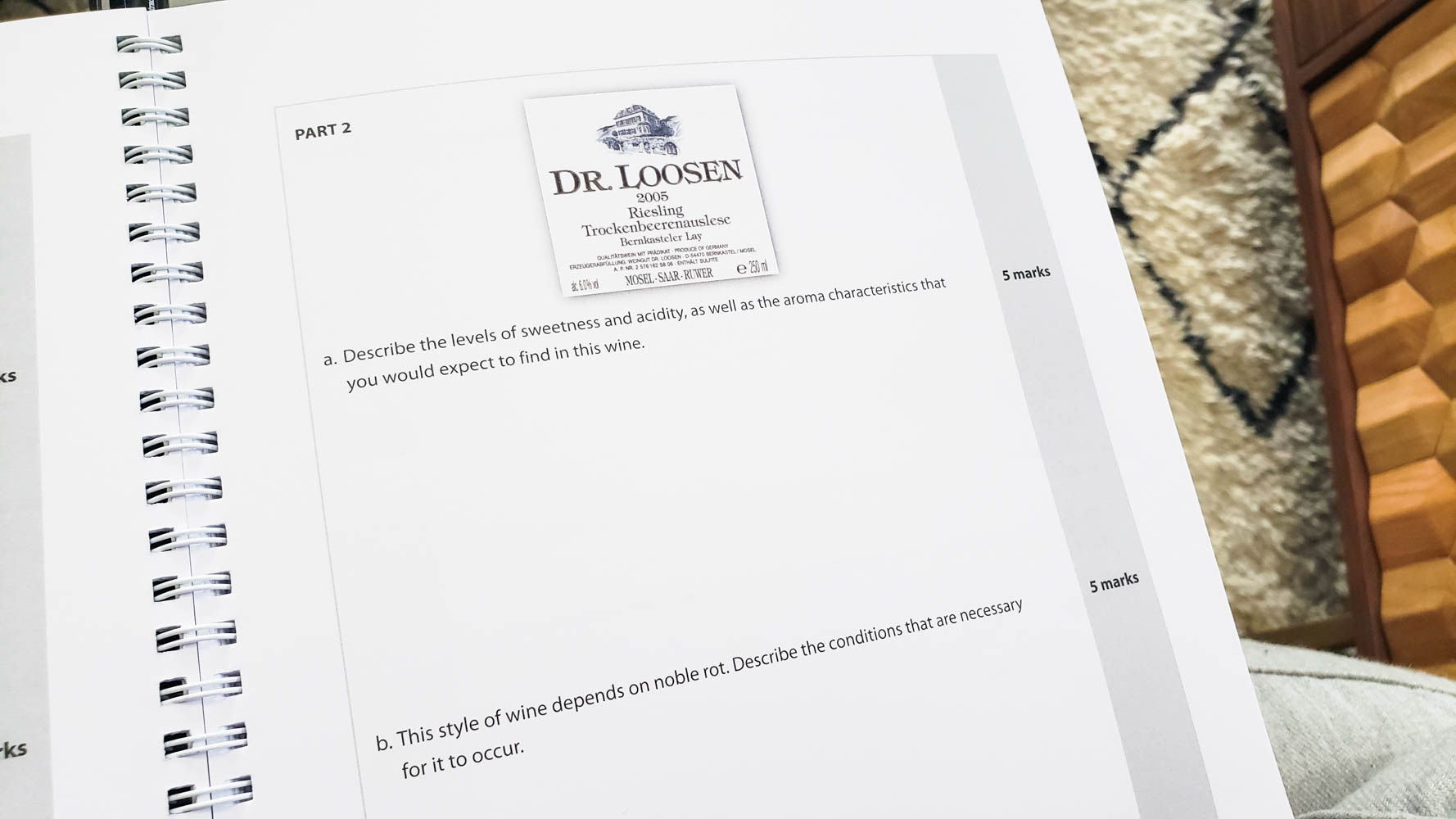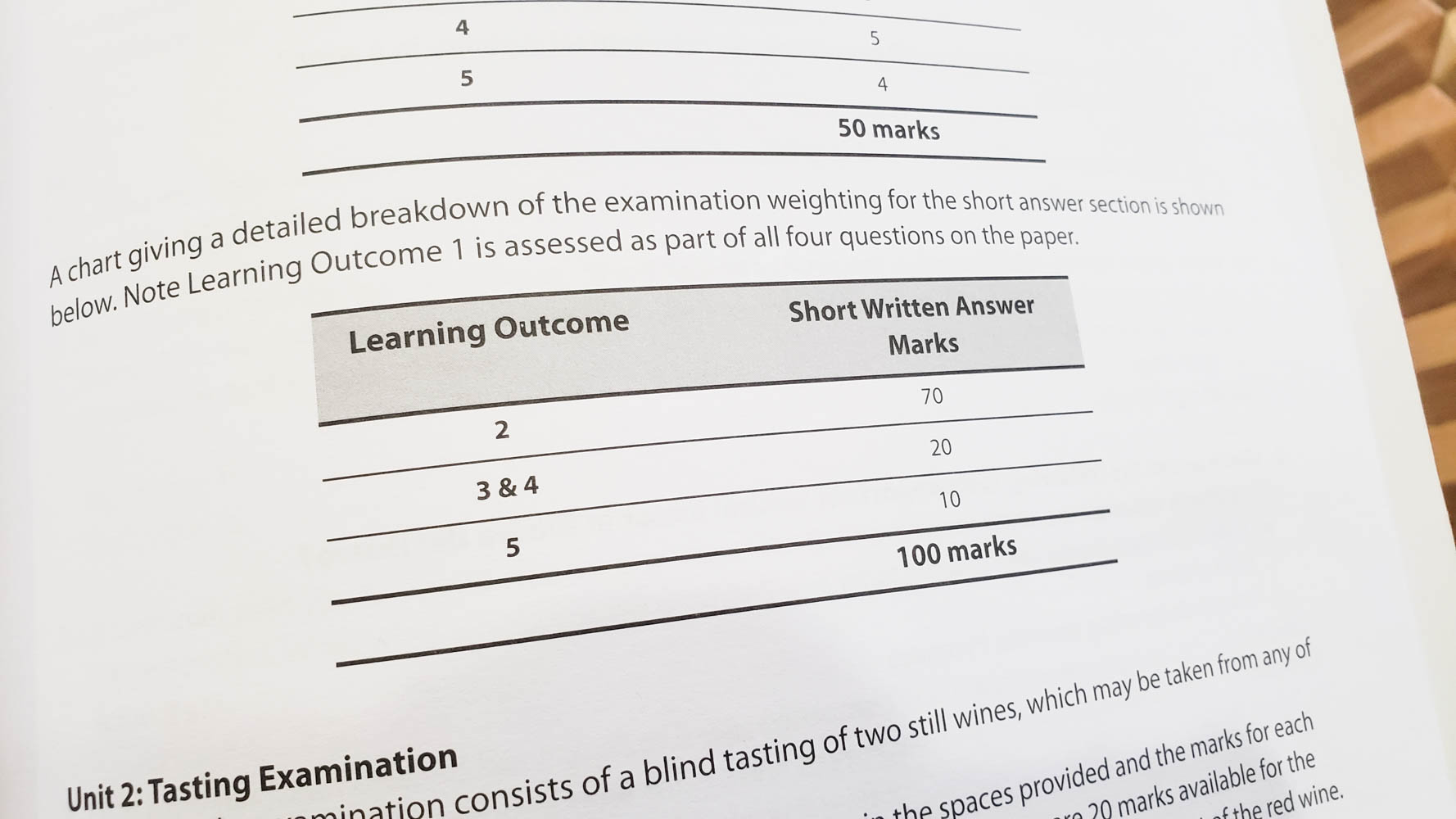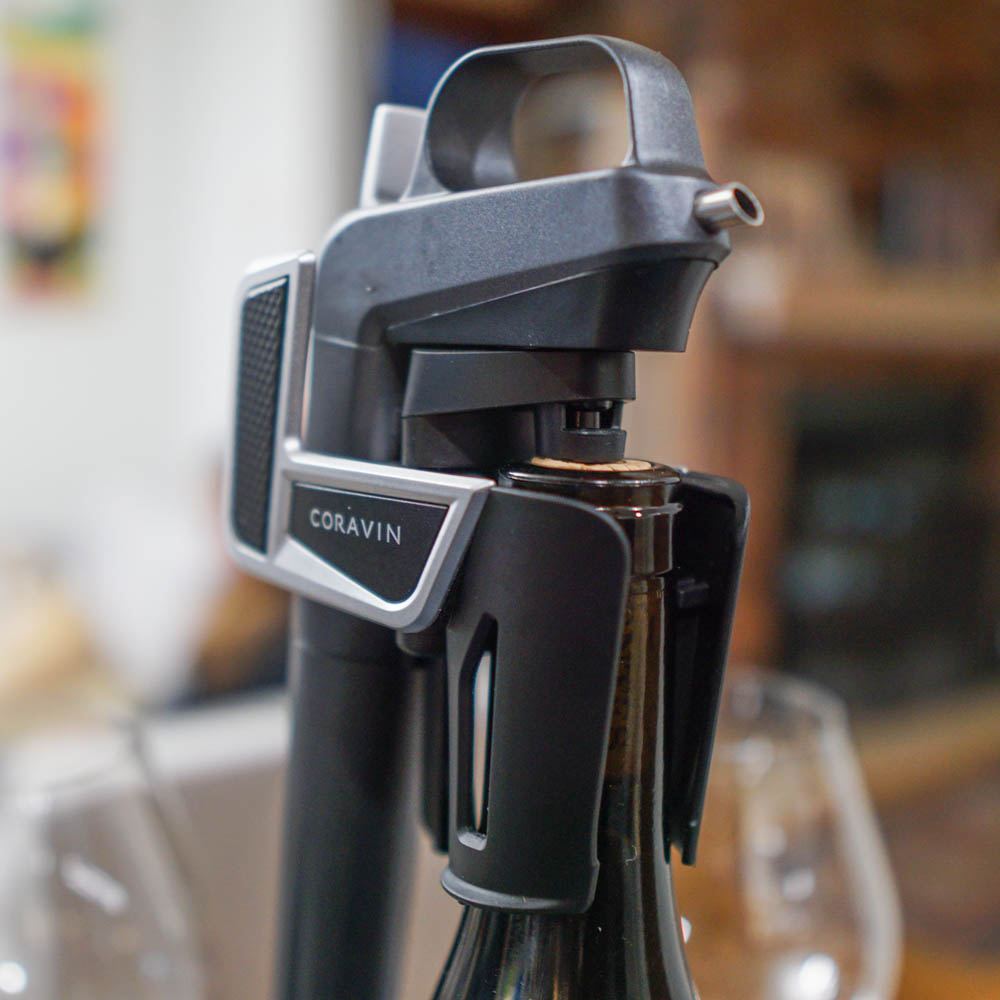Published by Jeremy.
Disclaimers: We use demographic data, email opt-ins, display advertising, and affiliate links to operate this site. Please review our Terms and Conditions for more information. This website is intended for those of legal drinking age in your jurisdiction.
Out of the three sections of the WSET Level 3 exam, it is the essay portion that terrified me the most.
Why? Well, a few reasons.
First, WSET multiple-choice exams only have four possible answers, and you can likely deduce the right answer in many cases. Even without that, I'll take a 25% chance of being right over 0% any day.
Second, the WSET Level 3 tasting exam follows the Systematic Approach to Tasting lexicon. Again, simply using the right words and being in the ballpark will get you pretty far in this one (we discuss more about why in the previous article).
But for the essay, you're on your own. And with just “four” questions at 25 points each, well, things can go south in a hurry. Don't worry, though, as we've got some tips to help you prepare!
Note: I took the WSET Level 3 exam in April 2021. Test material and structure can and does change over time. I passed the theory portion with distinction.
What to Expect in the WSET Level 3 Essay Exam
At the time of my exam, the Level 3 Essay portion included “four” questions that were worth a total of 100 points and required complete sentence responses.
The word four is emphasized here because while the official language for the test mentions four questions, worth 25 points each, these can have multiple sub-questions within them. So, really, you should think of the essay exam as roughly 10-25 questions grouped in four broad themes.
It is also worth highlighting that the course specification tells you the points distributions in the various learning outcomes, which for my exam included 70 points for still wines of the world, 20 points for sparkling and fortified wines, and 10 points for providing information and advice to “customers and staff” about wine.
As you only need 55 points to pass, you'll do well to recognize that sparkling, fortified, and wine recommendations account for 30. Knowing these can really go a long way to get a passing score!
From there you're given two hours to sit, reflect, and work on your answers. Although it is worth noting that this time limit includes the multiple-choice exam as well. So we think you should be prepared to allocate an hour to each, and if you can get done with the multiple-choice exam faster (say, within 30 minutes), even better- you'll want as much time for the essay portion as possible.
I will be quite honest and state that, while I could've been done much earlier than the two-hour mark, I used every possible second to refine my answers. And it goes by fast.
Logic to Consider for the WSET Level 3 Essays

I firmly believe that one of the biggest reasons test takers fail the Level 3 essay section is because they simply blank out on all the concepts they learned when attempting to answer a question. If you are given a question about, say, “What choices can be made in the vineyard for successfully growing grapes in the Mosel?”, you may, in the heat of the moment, blank out and stare at the question like a deer in the headlights. (Note: This was a practice question we discussed in our class.)
Depending on how much you forget, you could really hurt yourself in the points department here!
The real thought process that should be going on in your head if you get a question like the above is breaking down everything you know, organizing it, and applying it in the context of the region itself. Ask yourself things like what is the weather like in the Mosel? What grapes grow there? What is the terrain like? Is there anything inherently unique about wine from the Mosel? What techniques or characteristics must be exploited to benefit the wine-making process and why?
When it comes down to it, the question has a context clue that they're looking at the topic of vineyard management and that boils down to just a few key concepts which change based on the challenges of any given location.
Personally, I can't remember the exact vineyard management techniques for any given region off the top of my head. But what I do have is general knowledge of all of the vineyard techniques out there as well as general knowledge of the climates of most regions as well. Developing a successful answer for a question of this nature is simply making a logical deduction from what you know.
That is to say, to work with the cool continental climate of Mosel the producer would benefit from planting on a southerly aspect, on sloped sites, with rocky soils, use grapes that thrive on cooler temperatures and are resistant to rot, fungus, and molds (e.g. Riesling), and engage in frost prevention measures.
This is just naming a few off the top of my head based on vineyard techniques I know and applying what would work best for cool climates. As it turns out, this is pretty darn close to what really happens.
But to get the points, you'll want to dive into the where, when, what, why, and hows of each specific technique. What is a problem? The Mosel has late spring frosts. Why is that bad? It can damage newly developed shoots after budburst and flowers early in the season and reduce the crop volume. How can this be mitigated? By moving the air, spraying the vines with water, or adding heat sources like a flame near the grapes. Combining all of these points in one or two sentences could count as a complete answer for one point.
- Always keep in mind that defining the problem is sometimes just as important as providing a solution. Questions are often worded vaguely to test you on both ends of the question. If you just said “Frost is a problem in the Mosel which can be mitigated by moving the air, spraying water, or adding heat sources” you will likely miss points. If you recognize that frost is a problem, explain why it is a problem and also why it occurs in the region specifically. If you provide a solution like moving the air, explain how and why it works. Less is never more on this exam. Elaborate, elaborate, and elaborate some more if you have the time!
You should also let the total number of points be a guide as well. If the question is worth 3 points, the proctor is likely looking for three full statements like the above, each on a different topic. Three points, three answers. Five points, five answers. And so on. Count that you have enough unique points (at a minimum).
So you'd then need two more sentences discussing some of the other topics mentioned (say, rain concerns and ripening concerns via temperature). Repeat the thought process, construct your sentence, and when in doubt try and give as much detail as you can within the time you're allowed while also fitting a lot of detail into very, very tiny boxes.
While I cannot guarantee that all of your questions will be on vineyard management (or even one question, for that matter- again this was a question we simply discussed in our class as practice), taking this approach of thinking of the topic from a broad picture and deducing down can really help make a difference for just about every question they can throw at you.
Preparing for WSET Level 3's Essay Section
So, what can you do to prepare in advance and learn all the general topics outright? Well, here's a hint- you may not be able to take note cards with you for the exam, but there is nothing stopping you from making notes once the exam starts.
So, the solution is simple- quickly write out your thoughts at the start of the exam!
There are a lot of ways you can approach this on test day, but I personally found that it was simply easiest to read the essay questions at the very beginning of the exam and then immediately write out thoughts on a blank piece of paper to the side. Then, I moved on to the multiple-choice exam, and then returned to the essay at the end with my newly created notes ready to go (plus anything else that came to mind during the multiple-choice).
This helped me gather some thoughts when things were still fresh in my mind, and not blank on the topic after answering 50 unrelated multiple-choice questions.
So, you may be wondering, what broad categories may you want to know off the top of your head to reference later? I made my own little practice sheet to study off of with some of the more general terms covered in WSET Level 3. I studied the below to the point that I remembered them fairly well (enough, at least), and then made a note on my blank paper at the start of the essay exam if any synced up:
From there, when you start the essay portion it is best to stop, take a breath, review all the information you know about the topic (many general points will hopefully be on your sheet), and critically look at all the information that is given to you to break the question down.
- Pro-tip: Our instructor recommended we read the essay questions first, then jump to the multiple-choice exam, and return to the essays afterward. Questions in the multiple-choice portion may jostle your memory for the essay questions of which you can also take notes to the side for later.
Sometimes a question is only asking about a specific element in the wider process (e.g. only what goes on in the field). Some maybe even reference specific bottles with label images shown in the question. Keep in mind that a good answer may elaborate more on the problem just as much as providing the solution!
Odds are good there will be some context clues given that need to be addressed and if you couple this with your knowledge from above you should do fine. Stop, think, digest, deduce, and when in doubt give more details insofar as time allows- and don't forget to write in complete sentences, mention grapes and region names when applicable, and always use WSET terminology!
When it comes down to it, one of the biggest problems with the WSET Level 3 essay exam is simply blanking out on the topic outright. So be sure to sit back, take a breather, and reflect on everything you know. When it comes down to it, logic and the power of deduction may be all you need to get a few extra points even when you are unsure of the best answer!
What did you think of the WSET Level 3 essay exam? Comment below to share!
Upgrade Your Home Wine Bar
Need to upgrade your wine bar? Grab some new wine accessories:





